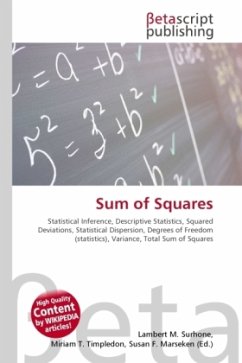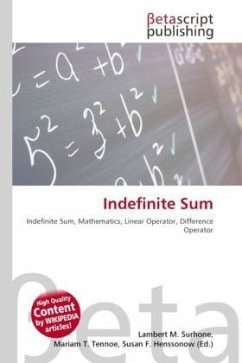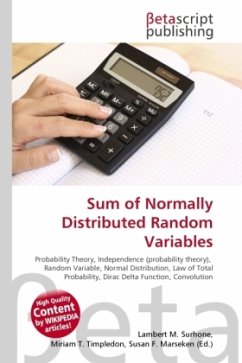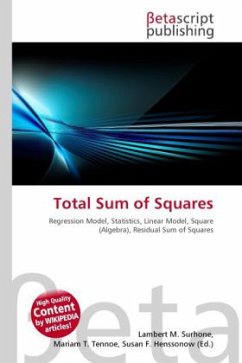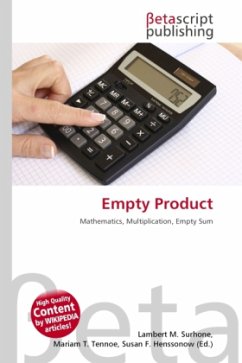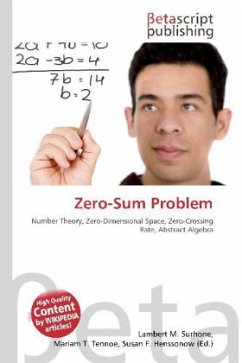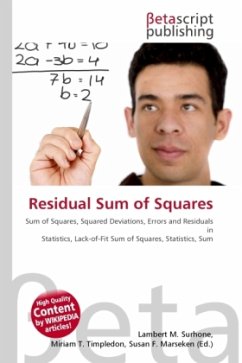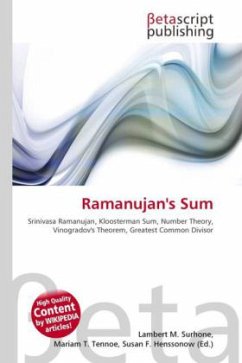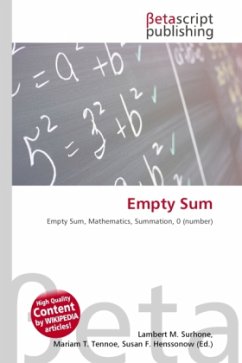
Empty Sum
Versandkostenfrei!
Versandfertig in 6-10 Tagen
26,99 €
inkl. MwSt.

PAYBACK Punkte
13 °P sammeln!
High Quality Content by WIKIPEDIA articles! In mathematics, the empty sum, or nullary sum, is a summation involving no terms at all. The value of an empty sum is zero. While any other summation involving finitely many terms is equivalent to an expression involving repeated use of the addition operation (possibly zero times, in case of a single term), this is not the case with an empty sum; therefore the value of the empty sum is determined by convention, rather than uniquely by the definition of addition. However the only reasonable value for an empty sum is 0, the neutral element for addition...
High Quality Content by WIKIPEDIA articles! In mathematics, the empty sum, or nullary sum, is a summation involving no terms at all. The value of an empty sum is zero. While any other summation involving finitely many terms is equivalent to an expression involving repeated use of the addition operation (possibly zero times, in case of a single term), this is not the case with an empty sum; therefore the value of the empty sum is determined by convention, rather than uniquely by the definition of addition. However the only reasonable value for an empty sum is 0, the neutral element for addition; thus adding any term to the summation will as usual increase its sum by the value of that term. Another approach would be to define the value of a finite summation not as the the result of adding up its terms, but rather as the result of starting with 0, and successively adding all the terms to it; this defines the value of an empty sum as zero without requiring a separate convention.



